-
About
- About Listly
- Community & Support
- Howto
- Chrome Extension
- Bookmarklet
- WordPress Plugin
- Listly Premium
- Privacy
- Terms
- DMCA Copyright
- © 2010-2025 Boomy Labs


 Laura L Dunkley
Laura L Dunkley
Listly by Laura L Dunkley
Parenting Tips on how to help your families stay safe while using social media and the internet. A few online usage tips & guidelines for children, teens, parents & teachers. Articles related to social media usage statistics for youth, cyberbullying Canadian laws and prevention, the internet of things [toys connected to the internet], privacy & security tips when online, news articles, and tools/resources available. http://lauradunkley.com/2015/11/21/parenting-tips-social-media-internet-security/

Advice from Common Sense Media editors. Capturing and posting casual moments might lead to oversharing and other consequences.
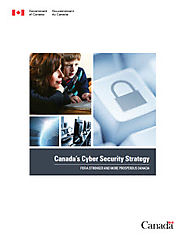
Canadians' personal and professional lives have gone digital: we live, work, and play in cyberspace. Canadians use the Internet, computers, cell phones and mobile devices every day to talk, email, text and twitter with family, friends and colleagues. We do business online everyday, from banking to shopping to accessing government services - and we do it from wherever we happen to be.
Most Canadian Internet users feel vulnerable to online threats. And yet many people take risks online, such as opening email from an unknown source or not protecting personal information stored on a computer. Take the time this October, during Cyber Security Awareness Month, to review your online safety practices.
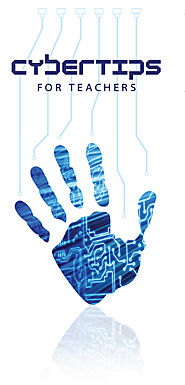
The use of technology has increased dramatically in recent years, but the standards of professionalism have not changed. Teachers are professionals and expected to model ethical and appropriate cyberconduct. Teachers hold a position of trust with students and will be held accountable if their actions expose students to inappropriate material or communications.

Bringing trust and respect to the Internet Imagine a digital world where there are no hackers, no privacy concerns, and you connect with people and businesses you know and trust. A safer world where your conversations are private and your data is secure.

You spend all day tweeting, liking, posting, and sharing, but what are these practices doing to your most important tool-your brain? The human brain has had to adapt to many changes throughout history as new technologies were introduced (the printing press, anyone?) and the acceleration of the Internet and social media has shown fascinating effects on the mind.

The American Academy of Pediatrics (AAP) recently released findings from a comprehensive study on the impact social media has on kids and families. Although there are real benefits to kids using sites like Facebook, including increased communication, access to information and help in developing a sense of self, there can be serious downsides to all this online sharing too.
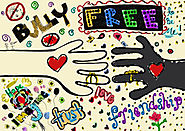
"It was just spur of the moment. I was with my friends at the time, so it was just messing around. I didn't mean for her to see it all, it was just a joke with my friends. I thought only my friends on my Facebook would see it..."

How can you teach your children to use the internet safely? It's a question I've been thinking about a lot, as the father of five and seven year-old sons who are already adept with parental tablets and laptops alike.

We build tools and controls into our products that help you manage your online experience. Learn about SafeSearch, YouTube Safety Mode, and content filtering on Android below. SafeSearch is designed to screen sites that contain sexually explicit content and remove them from your search results.
Do young people care about privacy? Participants in MediaSmarts' 2012 focus groups told us that they valued their privacy highly, despite being enthusiastic participants in platforms and activities that adults see as being about nothing but sharing and broadcasting.

Two 12-year-old girls are facing attempted murder charges for allegedly stabbing another girl 19 times in the woods in Waukesha, Wisconsin; police say they were trying to please an online demonic creature called "Slender Man."

PREVNet provides information on cyberbullying.
"It was just spur of the moment. I was with my friends at the time, so it was just messing around. I didn't mean for her to see it all, it was just a joke with my friends. I thought only my friends on my Facebook would see it..."
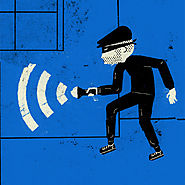
As a growing number of Internet-connected home appliances hit the market, David Bryan and Daniel Crowley worry that digital ne'er-do-wells will get new ways to take control of these devices, unlocking your house, running up your heating bill, flushing your toilet-or worse-from afar.

At New York's Toy Fair, the toy industry's big February trade show, visitors to Mattel's booth were greeted, literally, by Hello Barbie, a Wi-Fi-connected doll that uses speech-recognition technology to have real conversations with kids.

When Kickstarter campaigns are unsuccessful, we assume those products never get to see the light of day. In 2013, Circle, a device that lets parents manage online content on all devices in their home network, failed to meet its funding goal.
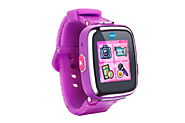
Electronic toy maker VTech is the latest company to suffer a high-profile data breach. This hack is especially troubling since it allowed the perpetrators to access photos and addresses of customers' children. VTech sells a number of kid-friendly tech products that contain cameras-like computers, tablets and even a smartwatch.

Mattel's latest Wi-Fi enabled Barbie doll can easily be hacked to turn it into a surveillance device for spying on children and listening into conversations without the owner's knowledge. The Hello Barbie doll is billed as the world's first "interactive doll" capable of listening to a child and responding via voice, in a similar way to Apple's Siri, Google's Now and Microsoft's Cortana.

Cyberbullying affects many teens. Find out what to do if you or your child are being cyberbullied, and how to stop it.

Marketing, Social Media, PR | Passion for Health, Wellness & Sustainability | Cyclist, Runner, Mom | www.lauradunkley.com